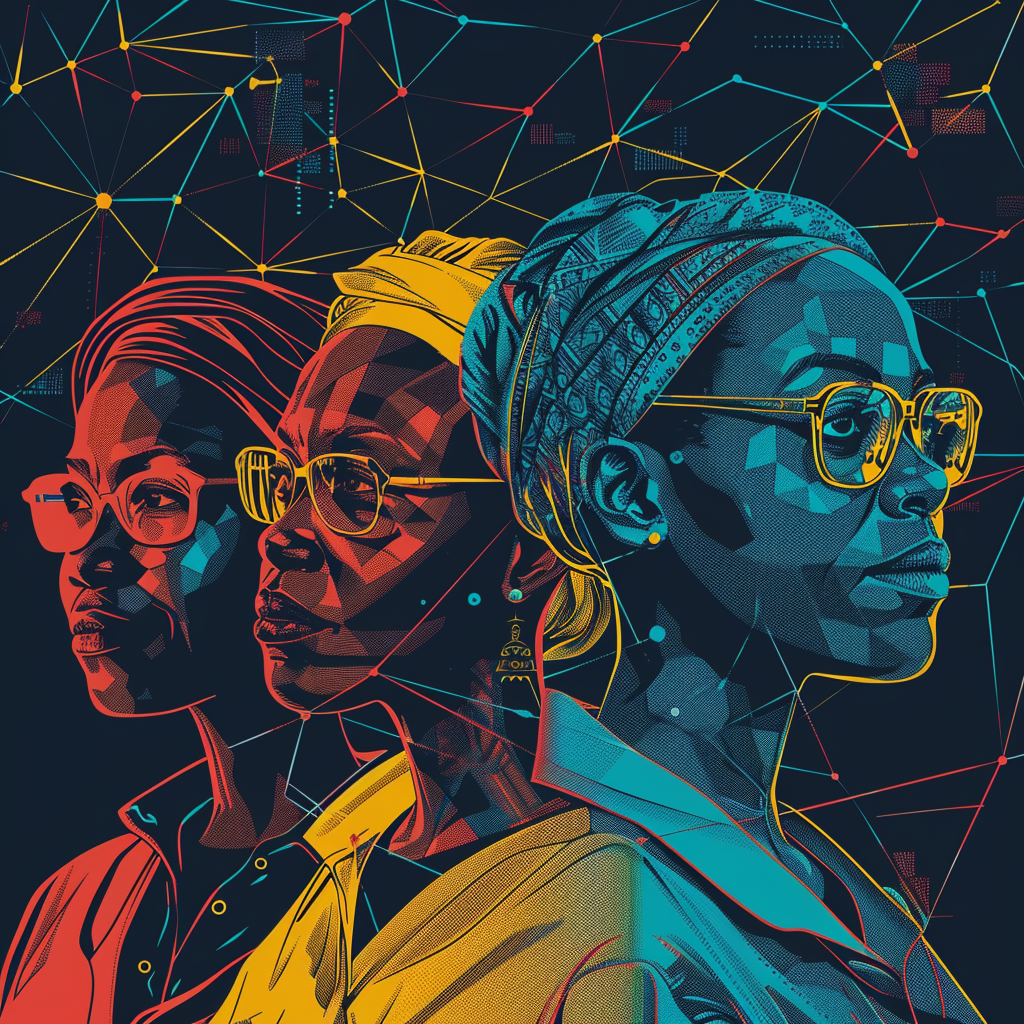
African women in STEM (Science, Technology, Engineering, and Mathematics) are blazing trails and shattering ceilings, making remarkable strides in fields historically dominated by men. These trailblazers are not only redefining what it means to be a scientist, engineer, or technologist in Africa, but they are also inspiring the next generation of girls to pursue careers in STEM.
The Unsung Heroes of African Science
While the achievements of women like Marie Curie and Ada Lovelace are well-known, the stories of African women in STEM often remain untold. These remarkable individuals have conducted groundbreaking research, developed innovative technologies, and mentored countless aspiring scientists.
- One of the most notable examples is Dr. Wangari Maathai from Kenya, a renowned environmentalist and the first African woman to win the Nobel Peace Prize. Her groundbreaking work in sustainable development and environmental conservation has set a precedent for women in STEM globally.
- Evelyn Gitau: Tech Solutions for Farmers: This Kenyan computer scientist developed an app that helps farmers get better crop information and prices.
- Nigeria’s Dr. Omowunmi Sadik, a leading chemist and inventor, has made significant contributions to environmental chemistry and nanotechnology, showcasing the innovative potential of African women in science.
- Dr. Nneka Okeke is a Nigerian physicist known for her research in geomagnetism. She has received numerous accolades for her work, including the L’Oréal-UNESCO for Women in Science Award. Her research has been pivotal in understanding the Earth’s magnetic field and its variations.
- In South Africa, Dr. Adriana Marais, an aspiring Mars astronaut, is breaking new ground in space exploration. Her work not only highlights the capabilities of African women in space science but also underscores the importance of diversity in the global scientific community.
- Meanwhile, Dr. Thembi Xulu, an influential public health leader, is making strides in combating HIV/AIDS and improving healthcare systems across the continent.
- Similarly, Dr. Olive Shisana is a prominent public health expert whose research has significantly influenced health policies in South Africa. Her work in HIV/AIDS prevention and treatment has saved countless lives and improved public health systems.
- Dr. Quarraisha Abdool Karim: South African epidemiologist, Karim’s research on HIV prevention has saved countless lives.
- Professor Tebello Nyokong: A world-renowned award winning scientist from Lesotho, uses light and special dyes to find and treat diseases like cancer. Nyokong’s work in photodynamic therapy has the potential to revolutionize cancer treatment.
- Dr. Segenet Kelemu: An Ethiopian molecular plant pathologist, Kelemu’s research focuses on improving crop yields and combating plant diseases in Africa.
- Dr. Tewolde Egziabher (Ethiopia) An influential biologist, Dr. Tewolde Egziabher has made significant contributions to biodiversity and environmental conservation. Her work in promoting sustainable development and biodiversity in Ethiopia and beyond has been widely recognized.
- Dr. Sarah Nyengerai ( Zimbabwe) is a notable chemist whose research has significantly impacted the field of medicinal chemistry. Her work focuses on developing new drugs and therapies for diseases prevalent in Africa, including malaria and HIV/AIDS.
African women in STEM are also making their mark in technology and engineering
- Dr. Nthabiseng Taole is a leading computer scientist whose work in artificial intelligence and machine learning is paving the way for technological advancements in Africa. She is also an advocate for women in technology, working to close the gender gap in STEM fields.
- Rebecca Enonchong, a Cameroonian technology entrepreneur, has been instrumental in advancing tech innovation and entrepreneurship in Africa. Her work with AppsTech, a leading provider of enterprise application solutions, exemplifies how African women are driving technological advancements and economic growth.
Overcoming Obstacles, Inspiring Change
African women in STEM often navigate a complex landscape of systemic bias, limited resources, and societal expectations. Yet, their resilience and determination fuel their pursuit of knowledge. The impact of these women extends beyond their individual achievements.
- Initiatives like the African Women in Agricultural Research and Development (AWARD) are providing mentorship and resources to support women scientists in agriculture, addressing critical issues of food security and sustainable agriculture. These programs are essential in nurturing the talents of African women and ensuring their contributions to STEM are recognized and valued.
- Mentorship and Networking: African Women in Science and Engineering (AWSE) network provide crucial support and mentorship opportunities.
- Grassroots Organizations: Organizations like the Association for Women in Science in Developing Countries (AWID) empower women through training and advocacy.
- Educational Initiatives: Programs like Technovation challenge girls to create mobile apps that address community problems, fostering a love for technology from a young age.
The Ripple Effect: Empowering Future Generations:

The impact of African women in STEM extends far beyond laboratories and research papers. Their achievements challenge stereotypes, demonstrating that girls and women can excel in any field they choose. By serving as role models, they inspire the next generation of scientists, engineers, and innovators.
The Way Forward:
To truly unlock the potential of African women in STEM, continued investment in education, research, and mentorship programs is essential. By creating inclusive environments that celebrate diversity, we can foster a vibrant STEM community where women’s contributions are not only recognized but celebrated.
Conclusion
The stories of African women pioneers in STEM are a testament to human ingenuity, resilience, and the power of representation. Their groundbreaking work challenges us to rethink what’s possible and inspires us to build a more equitable future where everyone has the opportunity to reach their full potential.
Despite the significant progress, they continue to face challenges, including gender bias, lack of funding, and limited access to education and professional networks. However, their resilience and determination are paving the way for a more inclusive and innovative future. By breaking barriers and challenging stereotypes, these women are not only transforming their fields but also empowering future generations of African girls to dream big and pursue careers in STEM. Mentors act as living examples, debunking myths and proving that success knows no gender.


